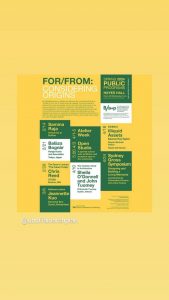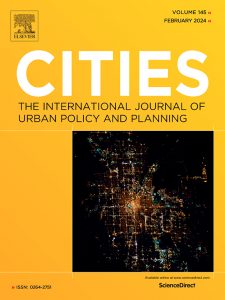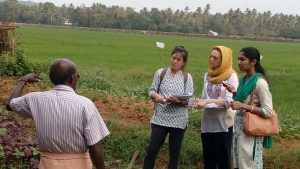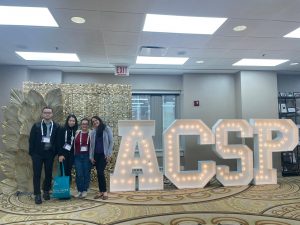By Catherine Donnelly
Rose Thomas, MPH/MSW ’23, believes macro-level change can improve the health of marginalized communities and came to UB to explore her interests through the MPH/MSW program. She took a circuitous path to get here, having switched majors several times as an undergrad. She finally chose to focus on understanding the impact of the environment on health and selected public health for her bachelor’s degree.
“I had many questions about city neighborhoods, like, ‘Why aren’t the sidewalks walkable? Where are healthy food options?’ and ‘How can we make neighborhoods healthier?’” she says.
“I realized I needed to expand my opportunities and chose social work because of how it unravels the history of structural racism and inequities that marginalized groups have faced,” she continues. “I was especially interested in learning more about how I can address these issues through macro social work, like nonprofit management, policy, and evaluation.”
At UB, she started with the MPH portion of her dual degree and then moved into social work courses, leveraging her team-building skills to create a community of peers who studied together.
“I was fortunate to know several other students doing the MPH/MSW, too,” she says. “I think it is a great combination, but the pandemic made it challenging. My advice to other students in this dual program is to advocate for yourself, work with your peers as a collective and talk to your professors.”
Thomas combined her MSW and MPH field placements to work at the International Institute of Buffalo in Survivor Support Services and at the Partnership for the Public Good, a community-based think tank that works on action-oriented research, policy development, and citizen engagement.
Outside of her required field experiences, Thomas also worked at the UB Food Lab and was able to conduct research that evaluated the Healthy Community Store Initiative to ensure the availability of healthy produce on the East Side of Buffalo and improve policies that help urban growers of color to have better access to resources.
“I have always wanted to help people affected by food apartheid. Overall health is impacted by the availability of nutrients, and food insecurity causes a lifetime of stress,” she says. “I loved that this lab reflected my values and beliefs, especially in terms of working on community-led research projects – uplifting the power, voice, and autonomy that community has.”
Before graduating, Thomas won a HRSA Public Health Scholarship for her efforts to strengthen the public health system and decrease health disparities for underserved communities. She also received the Julio Ramirez Memorial Award, dedicated to the late Ramirez and his passion for addressing social issues affecting the health of individuals, families, communities, and populations.
Today, Thomas is a public health consultant for the Ohio Department of Health in Columbus, Ohio. She was drawn to the position because it ensures that state programs for children adhere to health equity principles.
“Most of my experience has been working directly with youth or children,” she says. “Overseeing programmatic efforts on a wider scale is definitely a change, but I am excited to bring my experience with community engagement and evaluation.”
 February is Black History Month, an annual celebration of accomplishments, contributions and achievements by African Americans and a time to recognize their role in U.S. history
February is Black History Month, an annual celebration of accomplishments, contributions and achievements by African Americans and a time to recognize their role in U.S. history Dr. Samina Raja, founder and director of the UB Food Lab, will deliver a lecture, “Dis)entangling research(ers) from/in place,”
Dr. Samina Raja, founder and director of the UB Food Lab, will deliver a lecture, “Dis)entangling research(ers) from/in place,”




 In this article, Carol E. Ramos-Gerena asks: What do people know by becoming food policy literate? And who benefits or loses when a particular definition of food policy literacy becomes the norm? This paper conceptualizes critical food policy literacy for municipal food policy transformations. Click here to read the full article: https://www.foodsystemsjournal.org/index.php/fsj/article/view/1135/1106
In this article, Carol E. Ramos-Gerena asks: What do people know by becoming food policy literate? And who benefits or loses when a particular definition of food policy literacy becomes the norm? This paper conceptualizes critical food policy literacy for municipal food policy transformations. Click here to read the full article: https://www.foodsystemsjournal.org/index.php/fsj/article/view/1135/1106